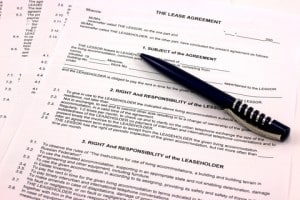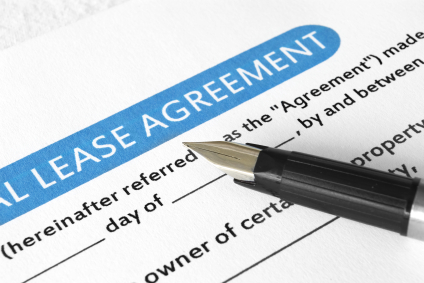Cleaning and repair rules when you move out
 The last thing you probably feel like doing as you move out of a rental is cleaning the place. Like it or not, though, you’re expected to leave it just as nice as it was when you moved in.
The last thing you probably feel like doing as you move out of a rental is cleaning the place. Like it or not, though, you’re expected to leave it just as nice as it was when you moved in.
If you leave a dirty place for your landlord, they can hold back the cost to clean up from your security deposit. After all, it is your mess. But the security deposit is your money. You want as much of it back as possible, right? So just what are your responsibilities?
Related: How to get your security deposit back
Read your lease
Besides typical cleanup duties such as washing the floor or vacuuming the carpet, the landlord expects you to do a thorough job of getting that rental back into shape. Move-out expectations vary, so check your rental agreement or lease to see what the landlord wants you to do.
Common cleanup duties
Common cleaning requests include wiping down baseboards, doorknobs, and light switches; dusting ceiling fixtures; washing the windows; and thoroughly cleaning appliances. Some landlords may expect a professional carpet cleaning as well. It’s definitely worth your time to read every move-out detail in your agreement, as some landlords levy extra fees if you don’t take care of an item on the list or if you don’t do it within the specified time frame.
Repair damages
Even minor damage to the rental must be repaired before you hand over the keys. A couple of nail holes may not seem like much to you, but if you don’t repair them, the landlord has to. That means they can bill you in the form of a deduction from your security deposit. Here’s a checklist of things to do:
- Patch nail and tack holes with a small amount of spackle.
- Erase scuff marks on walls and floors with a melamine foam eraser, aka a Magic Eraser.
- Rub a walnut over scratches in wood floors, or fill them in with a wood marker that matches the floor color.
- Replace anything you may have temporarily removed, such as cabinet hardware you swapped out for something that suits your own style.
- Go through each room and closet, replacing any light bulbs that no longer illuminate.
Cleaning not your thing? Hire someone
If you choose not to clean and repair everything on the move-out list, there’s still hope. Hire a cleaning company to tackle your checklist. Just make sure you’re available to inspect the space afterwards to make sure they took care of everything. The same goes for repairs. If you broke a handrail off in a stairwell, for instance, and don’t have time to repair it, hire a handyman or contractor to take care of the problem.
Tell your landlord about any damages
Inform the landlord of specific items you can’t fix on your own, such as a broken handrail. Your landlord may ask to see the damage and assess whether they can repair it easily. If so, you may be off the hook. If not, expect a repair bill.
Informing the landlord of potential damage or cleaning concerns is always better than just skipping out and leaving the work for your landlord. If you completely bail on your responsibilities, you’ll probably not get some—or all—your security deposit back.
You might be charged extra for damages
If the damage is beyond minimal, such as missing floor tiles, mold on the shower surround, or massive stains on the carpet, the landlord could charge you more than the amount of your deposit. For instance, if your security deposit is $900 and it will cost $1,200 to repair everything in your unit, you may owe $300 to cover the difference.
Rules for holding back a security deposit
Whenever a landlord withholds any money from your security deposit (including charging you extra), you are entitled to a detailed breakdown of charges. Check your state laws to ensure the charges are legitimate. Common sense also applies; for instance, a $250 charge to fill in three small nail holes is extreme and likely would not hold up in court.
Related: What to do if your landlord wrongfully kept your security deposit
All in all, taking care of a minor aggravation—cleaning your old place—is well worth your time. Besides, you agree to do it when you sign your rental contract. Once you’ve refreshed your old abode, you’ll get your deposit money back, as well as peace of mind, knowing you’re leaving on good terms with your former landlord. On to a fresh start!



 As the year comes to a close and a new one is set to begin, it’s a good idea to make sure your tenant leases are in order.
As the year comes to a close and a new one is set to begin, it’s a good idea to make sure your tenant leases are in order.


